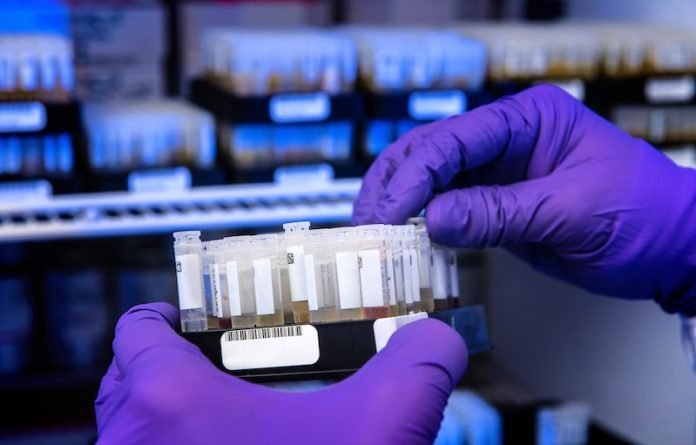
In a study from MIT, scientists have developed an easy-to-use test that may be able to answer that question.
Their test, which uses the same type of “lateral flow” technology as most rapid antigen tests for COVID-19, measures the level of neutralizing antibodies that target the SARS-CoV-2 virus in a blood sample.
Easy access to this kind of test could help people determine what kind of precautions they should take against COVID infection, such as getting an additional booster shot.
The test is designed so that different viral spike proteins can be swapped in, allowing it to be modified to detect immunity against any existing or future variant of SARS-CoV-2.
Currently, the gold standard approach to measuring immunity involves mixing a blood sample with a live virus and measuring how many cells in the sample are killed by the virus.
That procedure is too hazardous to perform in most labs, so the more commonly used approaches involve noninfectious modified “pseudoviral” particles, or they are based on a test called ELISA, which can detect antibodies that neutralize a fragment of a viral protein.
However, these approaches still require trained personnel working in a lab with specialized equipment, so they aren’t practical for use in a doctor’s office to get immediate results.
Lateral flow assays generally consist of paper strips embedded with test lines that bind to a particular target molecule if it is present in a sample. This technology is also the basis of most at-home rapid tests for COVID-19.
In the study, the team developed a device that can detect the presence of antibodies that block the SARS-CoV-2 receptor binding domain (RBD) from binding to ACE2, the human receptor that the virus uses to infect cells.
The team says this test might make the biggest difference for anybody who is receiving chemotherapy, anybody who’s on immunosuppressive drugs for rheumatologic disorders or autoimmune diseases, and for anybody who’s elderly or doesn’t mount good immune responses in general.
These are all people who might need to be boosted sooner or receive more doses to achieve adequate protection.
The test could be easily adapted to different variants of SARS-CoV-2 by swapping in a reagent that is specific to the RBD from the variant of interest.
The researchers now hope to partner with a diagnostics company that could manufacture large quantities of the tests and obtain FDA approval for their use.
If you care about COVID, please read studies about antibodies that block all the COVID-19 variants, and scientists find the cause of ‘brain fog’ in long COVID.
For more information about COVID, please see recent studies about the cause of long COVID symptoms, and results showing shark antibodies may hold the key to stopping COVID-19.
The study was conducted by Hojun Li et al and published in Cell Reports Methods.
Copyright © 2022 Knowridge Science Report. All rights reserved.



